
Become an Incathlab member and receive full access to its content!
Registration Login
Merci de nous donner vos retours sur ce live
Participer au sondage →
"La FFR ne ment jamais" Nico Pijls
Recommandation 1A depuis 2010, la FFR est devenu incontournable dans les salles de cathétérisme cardiaque. En France, Il y a plus d'un an, la FFR Abbott faisait son entrée dans les GHS (majoration) avec un acte tarifié.
Quelle est aujourd’hui la place de cet outil diagnostic et comment optimiser son utilisation au quotidien ?
Comment intégrer la FFR de manière standardisée dans vos procédures d'angioplastie ?
Quels sont les méthodes simples et rapides à mettre en place pour acquérir le réflexe FFR au cœur du Cathlab !
En regardant le replay de cette session interactive, vous pourrez obtenir des réponses à toutes ces questions, partager les avis et conseils de nos experts et trouver des solutions FFR adaptées à vos besoins.
Programme
-
L'outil diagnostic standard
Case-in-box n°1 : Lésion simple de la CD avec mesure FFR
Discussion interactive du panel
-
Complémentarités FFR & OCT
Case-in-box n°2 : Lésions étagées de la CD + lésion IVA
Discussion interactive du panel
-
L'allié incontournable chez le patient pluritronculaire
Case-in-box n°3 : Lésion du TC avec sténoses multiples
Case-in-box n°4 : Revascularisation de lésions multiples sur la CX
Discussion interactive du panel
- Conclusion
Cas Clinique : Clinical Data
-
Case-in-box n°1 : Lésion simple de la CD avec mesure FFR
- Patient âgé de 58 ans
-
FDRCV :
HTAdiabète non insulino-dépendant – pléthoriquehypercholestérolémietabagisme ancien
-
ATCD :Myocardiopathie dilatée avec réseau coronaire athéromateux en 2013FEVG = 42%, FA permanenteInsuffisance rénale chronique sur néphropathie diabétique pré-dialyseÉthylisme chronique, polyneuropathie axono-myélinique, adénome tubulo-villeux colique, hypothyroïdie, rétinopathie diabétique
-
Coronaro pré-opératoire (FAV)

-
Case-in-box n°2 : Lésions étagées de la CD + lésion IVA
- Patiente âgée de 62 ans
- FDRCV : hypertension artérielle
- Scène clinique infarctoïde il y 3 semaines survenue dans un contexte de stress intense
-
A l’entrée (disparition complète de la douleur)
ECG : sous décalage segment ST en territoire latéral
Troponine positive (7 ng/ml)
Echocardiographie : FEVG = 35% avec ballonisation apicale

-
Case-in-box n°3 : Lésion du TC avec sténoses multiples
- Patient âgé de 75 ans
-
FDRCV :
HTAdiabète insulino-requérant – pléthoriquehypercholestérolémietabagisme actif
-
ATCD: – AVCAOMIBPCO post tabagique – SASSd anxio-dépressif
-
Prise en charge pour SCA ST-

-
Case-in-box n°4 : Revascularisation de lésions multiples sur la CX
- Patient âgé de 55 ans
-
FDRCV :
pléthoriquehypercholestérolémie
-
ATCD :Asthme ancienDiverticulose colique
-
Prise en charge pour SCA ST+ antérieur il y a 1 mois à 2h 30 du début des symptômes

Objectifs Pédagogiques
- Comment utiliser la FFR en pratique courante ?
- Quelles méthodes appliquer pour une FFR standardisée ?
- Intérêt de la FFR dans les procédures simples
- Optimiser sa stratégie thérapeutique chez les patients plus complexes
- FFR et autres outils diagnostic
Cibles
- Cardiologues interventionnels francophones
- Paramédicaux francophones
Last update : 2021-05-21
Join the Discussion
Suggestions
San Francisco : Tuesday, January 25th 2022 from 08am to 09:30am (GMT+1)
New York : Tuesday, January 25th 2022 from 11am to 12:30pm (GMT+1)
Buenos Aires : Tuesday, January 25th 2022 from 01pm to 02:30pm (GMT+1)
London / Dublin : Tuesday, January 25th 2022 from 04pm to 05:30pm (GMT+1)
Paris / Berlin : Tuesday, January 25th 2022 from 05pm to 06:30pm (GMT+1)
Istanbul : Tuesday, January 25th 2022 from 06pm to 07:30pm (GMT+1)
Moscou / Dubaï : Tuesday, January 25th 2022 from 08pm to 09:30pm (GMT+1)
Bangkok : Tuesday, January 25th 2022 from 11pm to 12:30am (GMT+1)
Shanghai : Wednesday, January 26th 2022 from 12am to 01:30am (GMT+1)
Tokyo : Wednesday, January 26th 2022 from 01am to 02:30am (GMT+1)
Sydney : Wednesday, January 26th 2022 from 02am to 03:30am (GMT+1)
Wellington : Wednesday, January 26th 2022 from 04am to 05:30am (GMT+1)
The Role of Mechanical Circulatory Support in High-Risk PCI
Impella Case Club
San Francisco : Monday, July 4th 2022 from 08am to 09am (GMT+2)
New York : Monday, July 4th 2022 from 11am to 12pm (GMT+2)
Buenos Aires : Monday, July 4th 2022 from 12pm to 01pm (GMT+2)
Reykjavik : Monday, July 4th 2022 from 03pm to 04pm (GMT+2)
London / Dublin : Monday, July 4th 2022 from 04pm to 05pm (GMT+2)
Paris / Berlin : Monday, July 4th 2022 from 05pm to 06pm (GMT+2)
Istanbul : Monday, July 4th 2022 from 06pm to 07pm (GMT+2)
Moscou / Dubaï : Monday, July 4th 2022 from 07pm to 08pm (GMT+2)
Bangkok : Monday, July 4th 2022 from 10pm to 11pm (GMT+2)
Shanghai : Monday, July 4th 2022 from 11pm to 12am (GMT+2)
Tokyo : Tuesday, July 5th 2022 from 12am to 01am (GMT+2)
Sydney : Tuesday, July 5th 2022 from 02am to 03am (GMT+2)
Wellington : Tuesday, July 5th 2022 from 04am to 05am (GMT+2)
Comment optimiser le traitement des longues lésions calcifiées grâce à l’OCT ?
Live-in-a-box case, Angioplastie Coronaire guidée par l’OCT
San Francisco : Thursday, January 19th 2023 from 07am to 08am (GMT+1)
New York : Thursday, January 19th 2023 from 10am to 11am (GMT+1)
Buenos Aires : Thursday, January 19th 2023 from 12pm to 01pm (GMT+1)
London / Dublin : Thursday, January 19th 2023 from 03pm to 04pm (GMT+1)
Paris / Berlin : Thursday, January 19th 2023 from 04pm to 05pm (GMT+1)
Istanbul : Thursday, January 19th 2023 from 05pm to 06pm (GMT+1)
Moscou / Dubaï : Thursday, January 19th 2023 from 07pm to 08pm (GMT+1)
Bangkok : Thursday, January 19th 2023 from 10pm to 11pm (GMT+1)
Shanghai : Thursday, January 19th 2023 from 11pm to 12am (GMT+1)
Tokyo : Friday, January 20th 2023 from 12am to 01am (GMT+1)
Sydney : Friday, January 20th 2023 from 01am to 02am (GMT+1)
Wellington : Friday, January 20th 2023 from 03am to 04am (GMT+1)

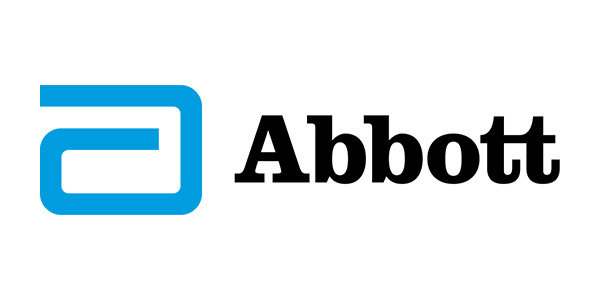
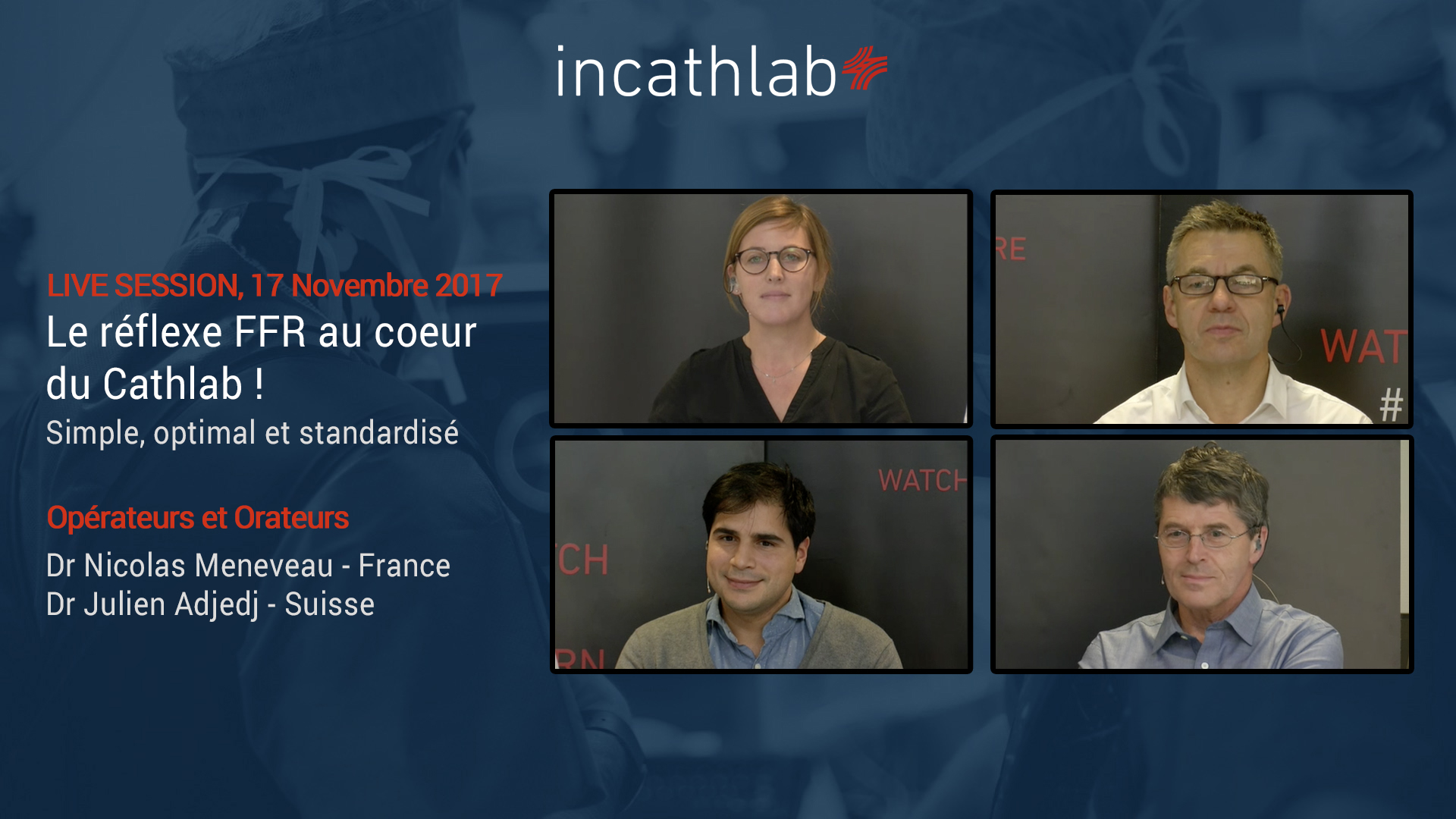
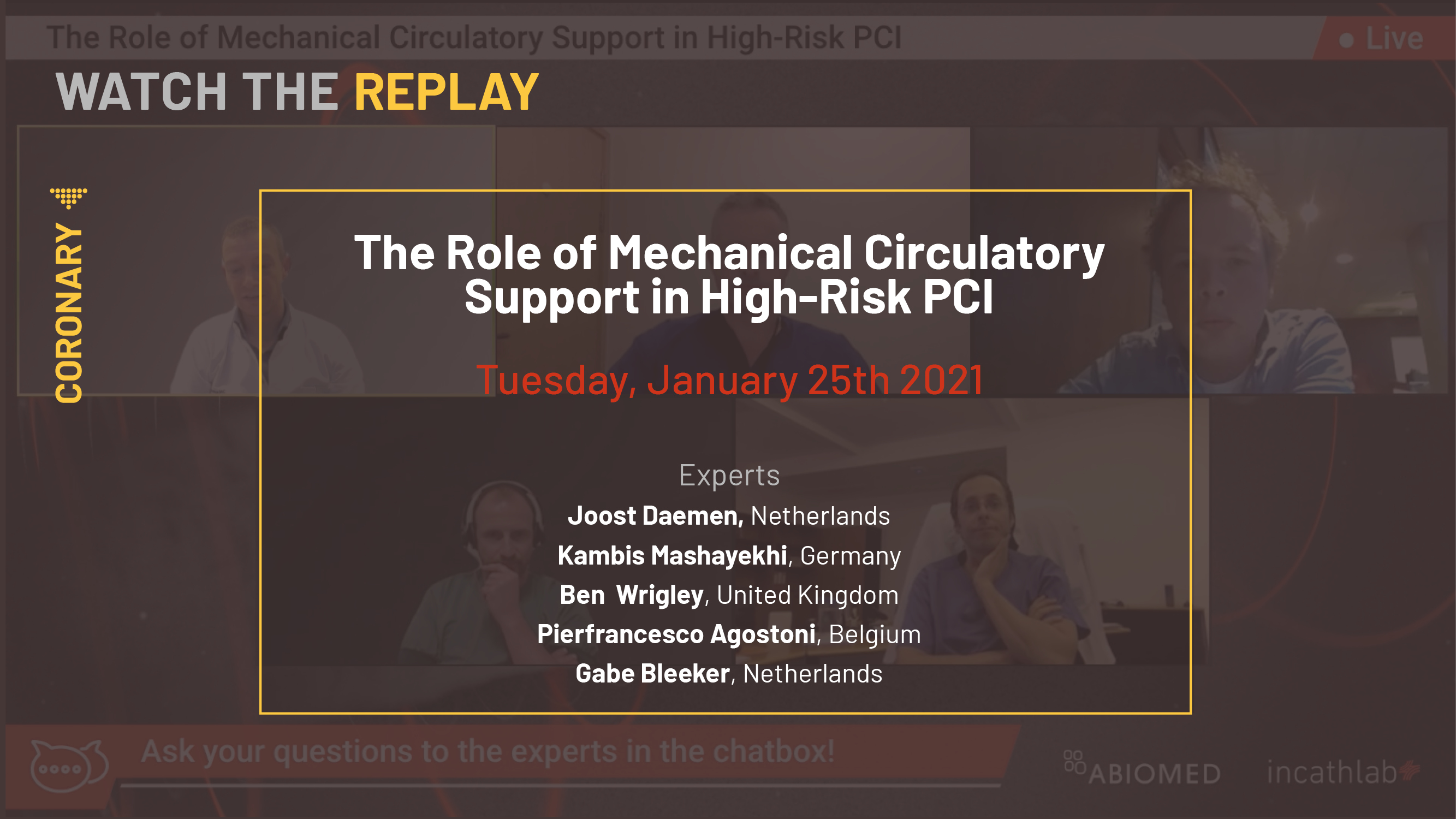
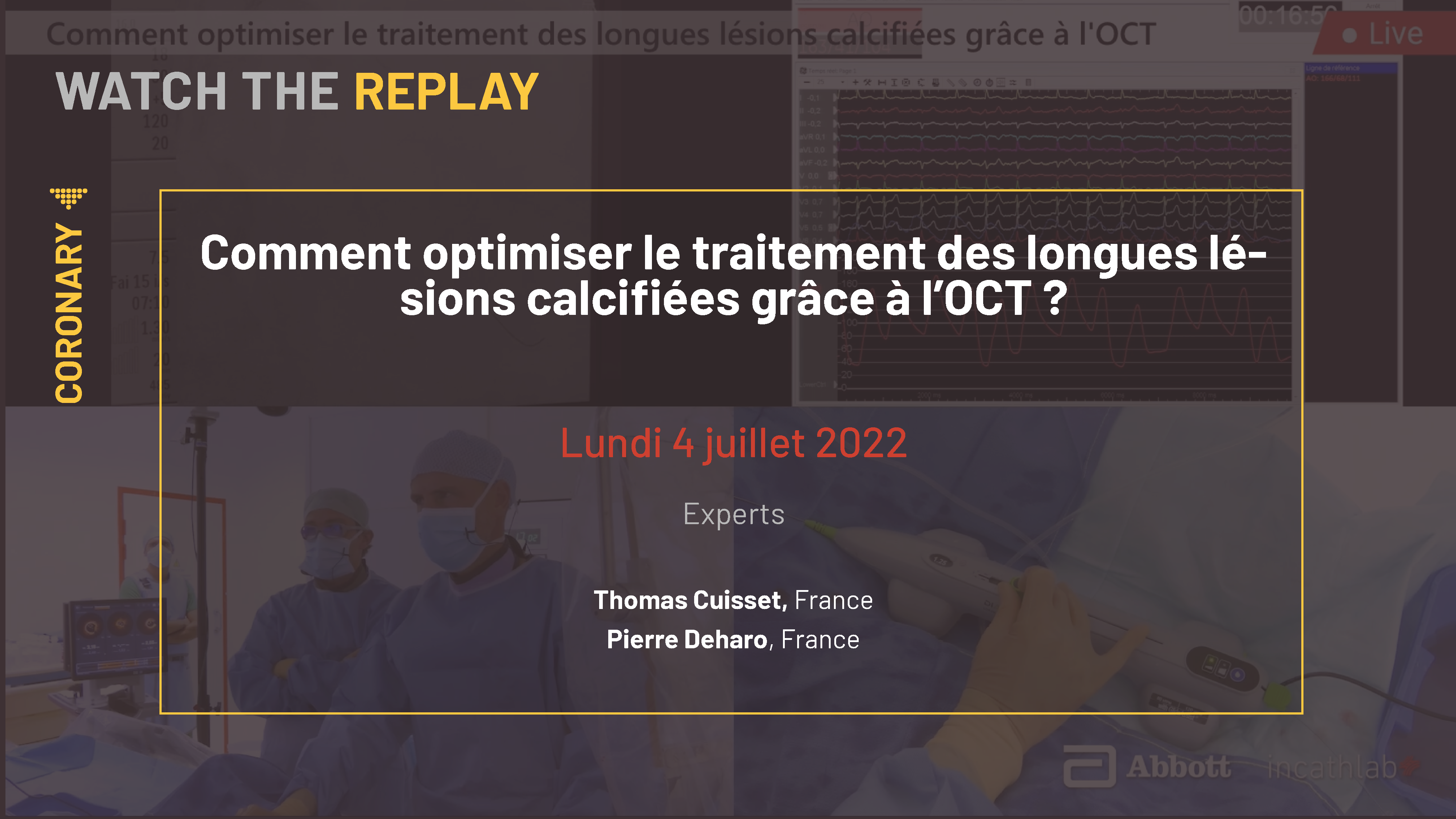
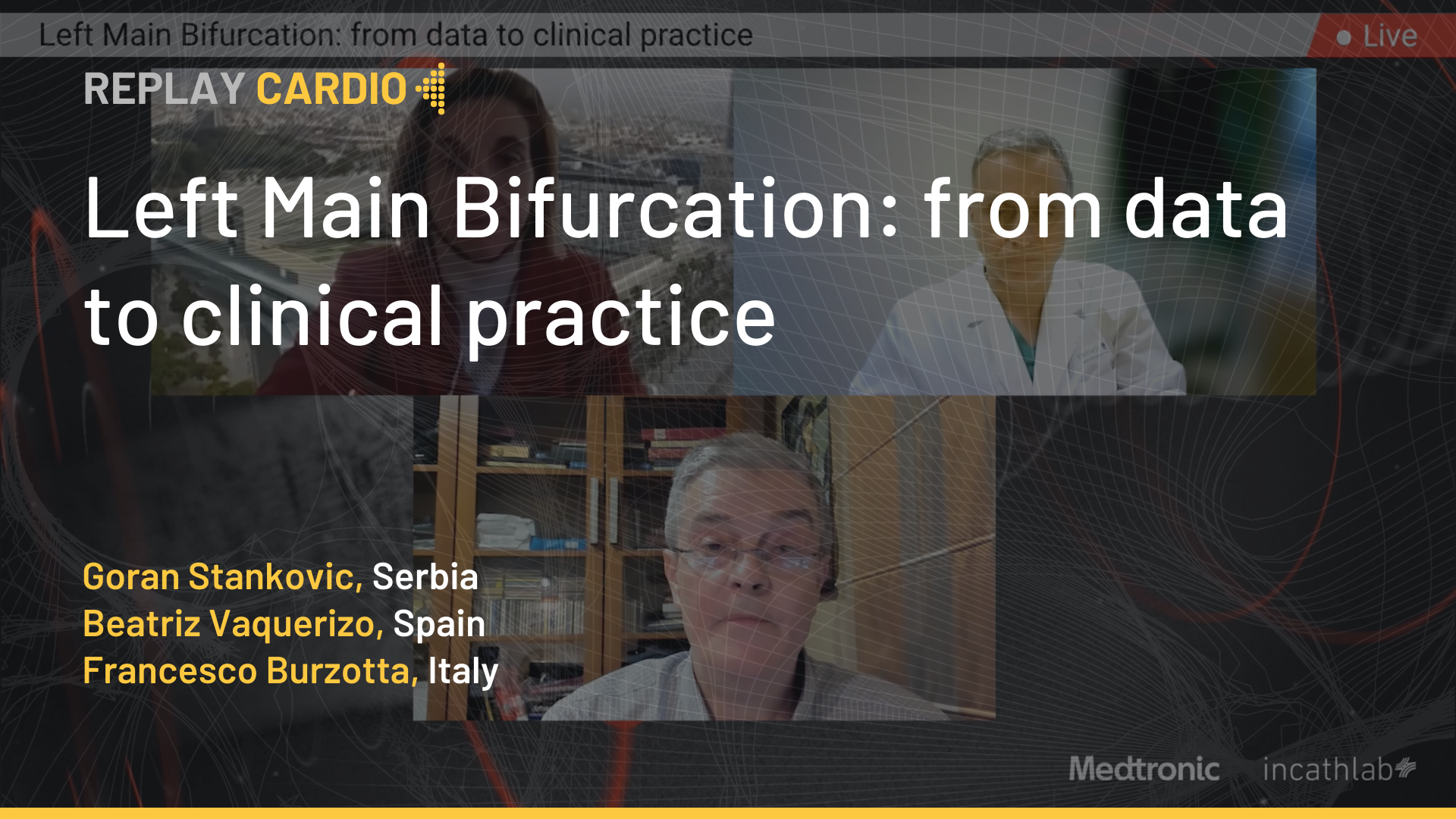
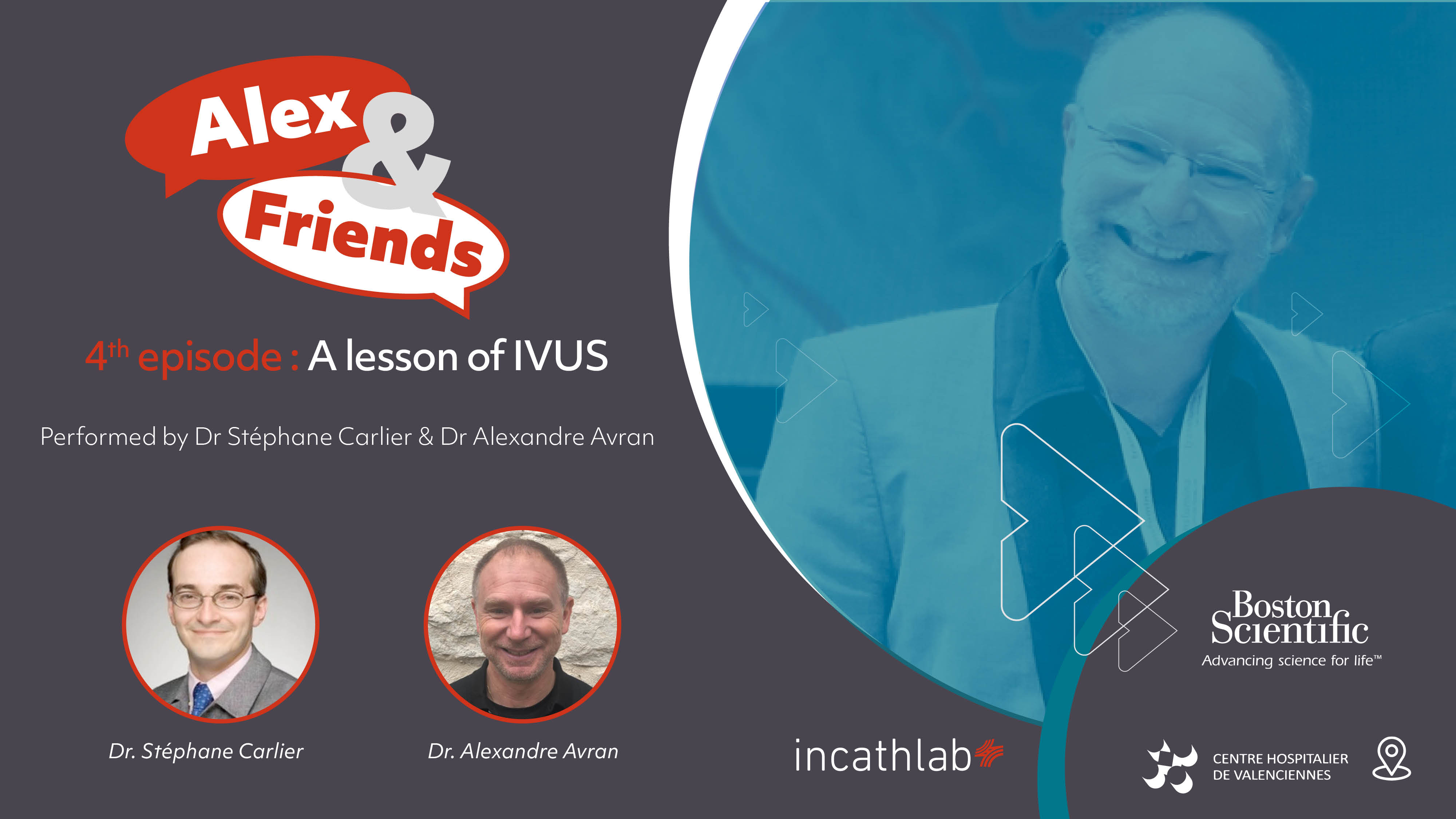
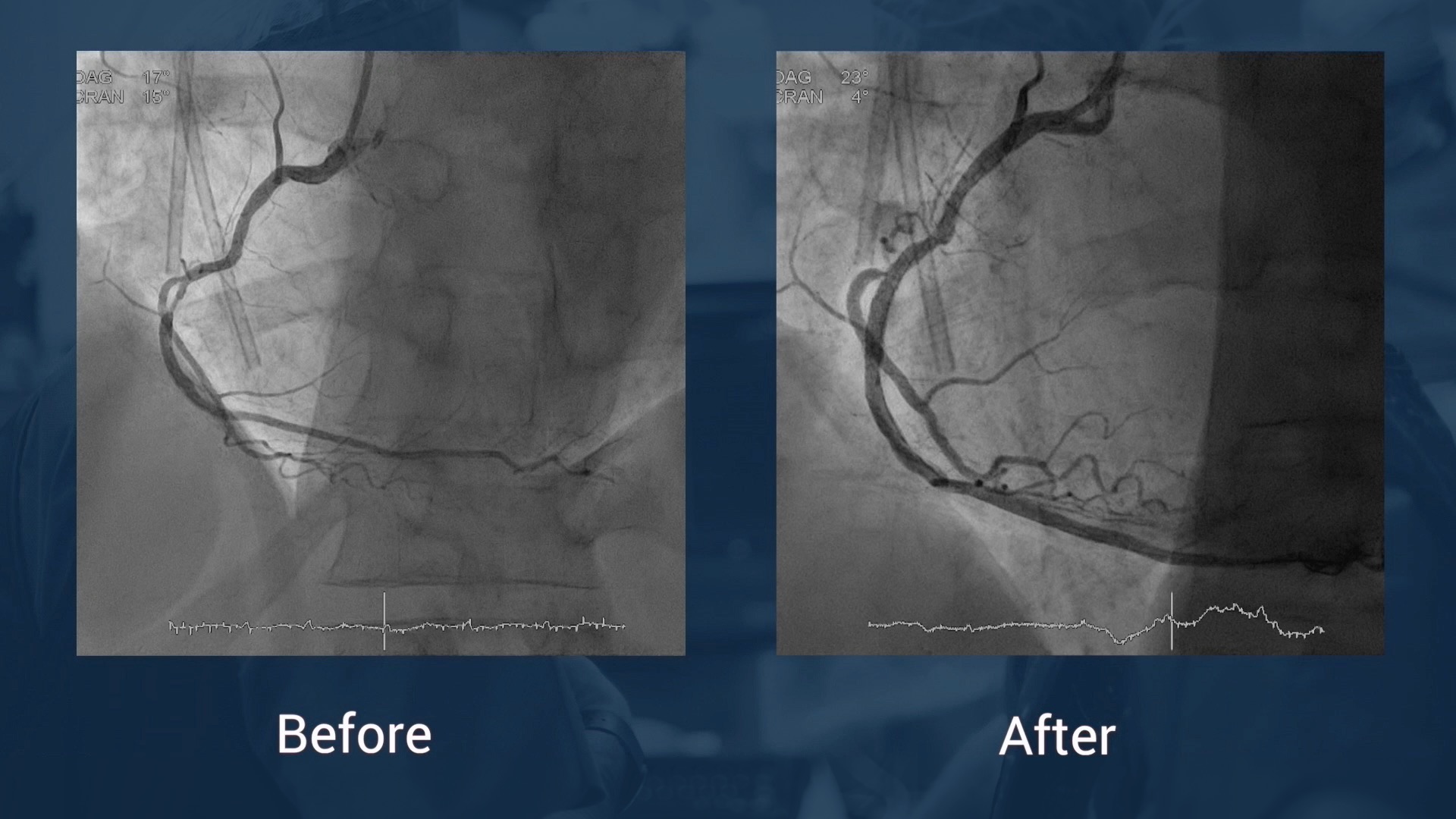
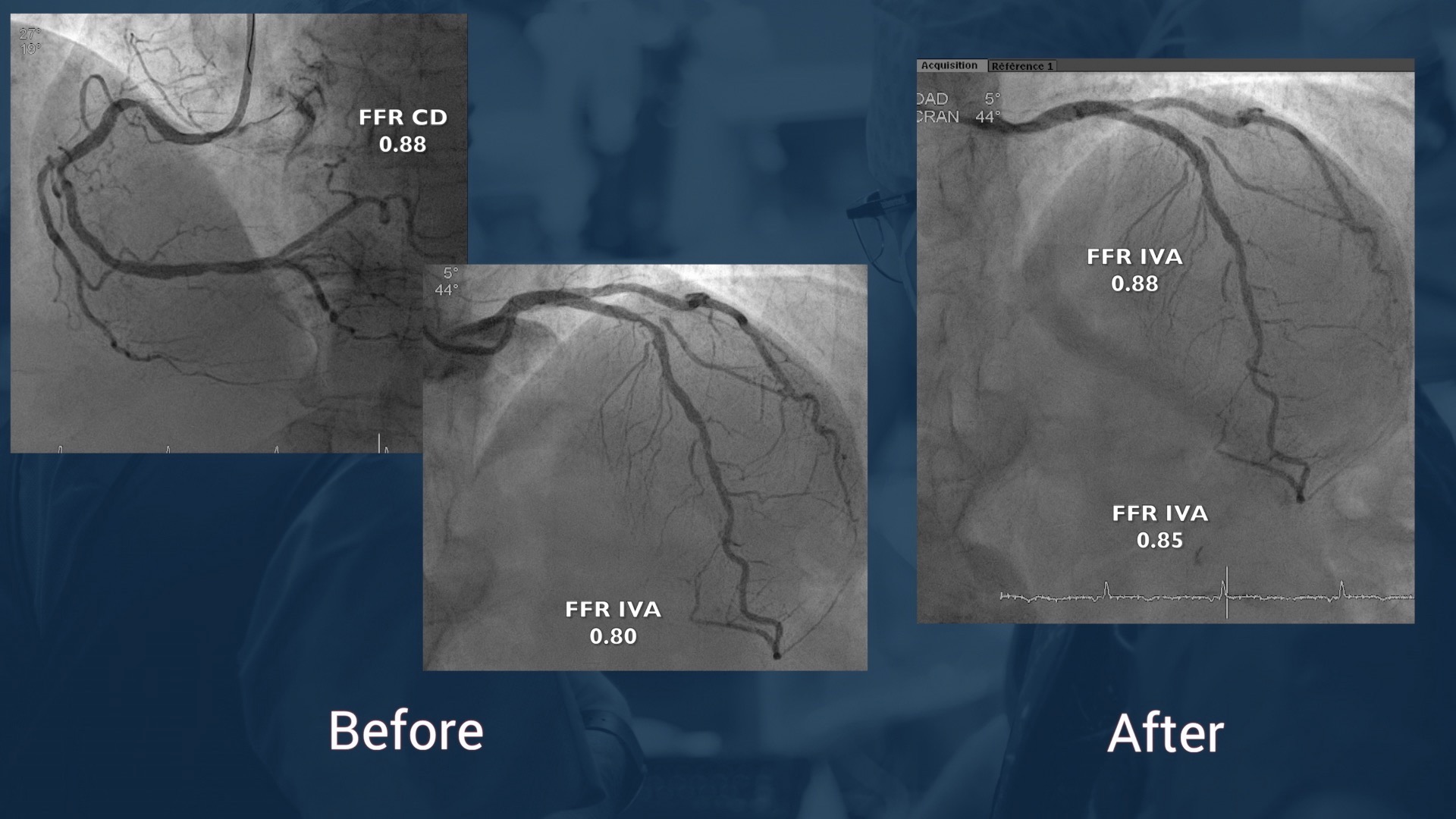
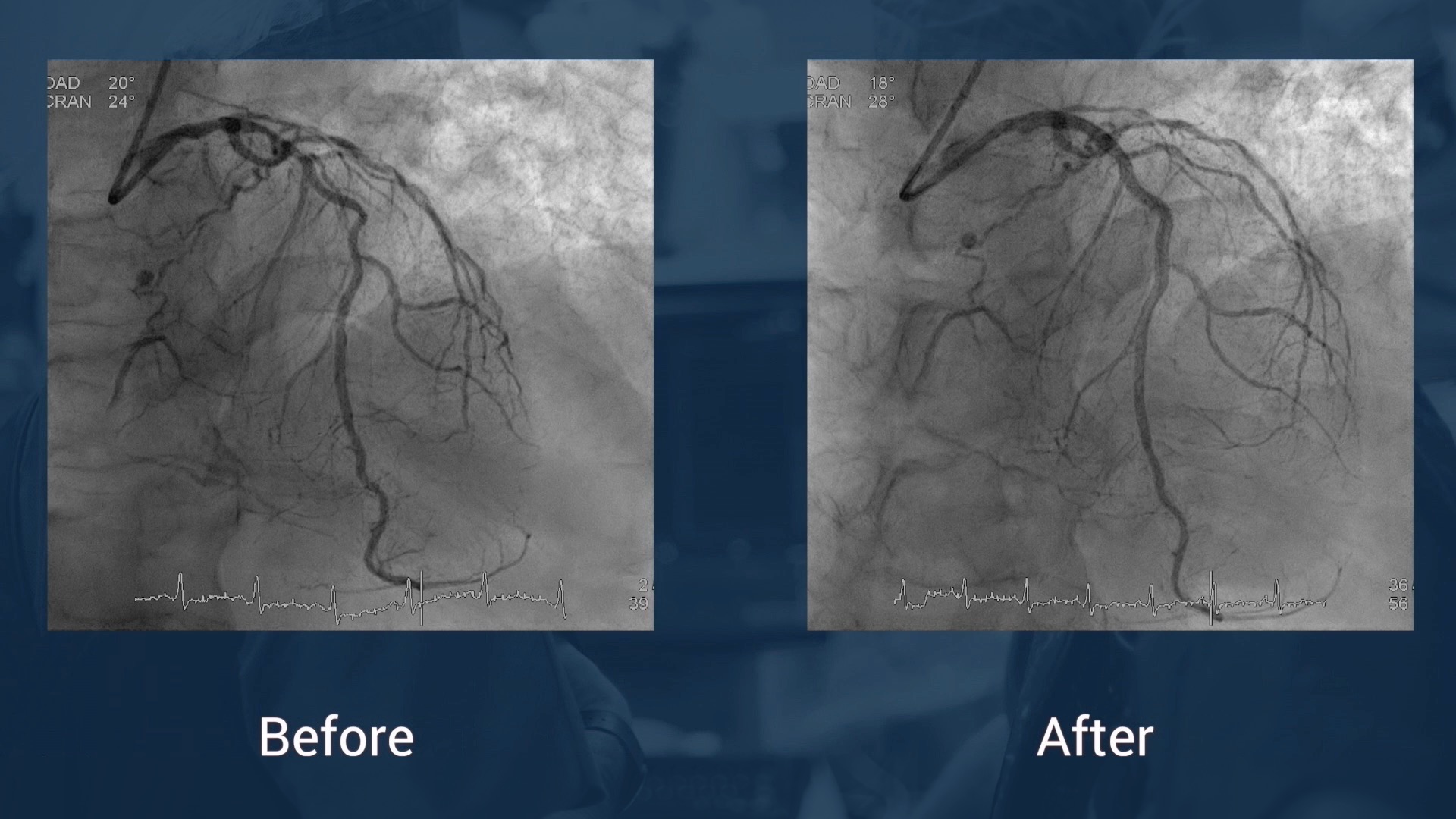
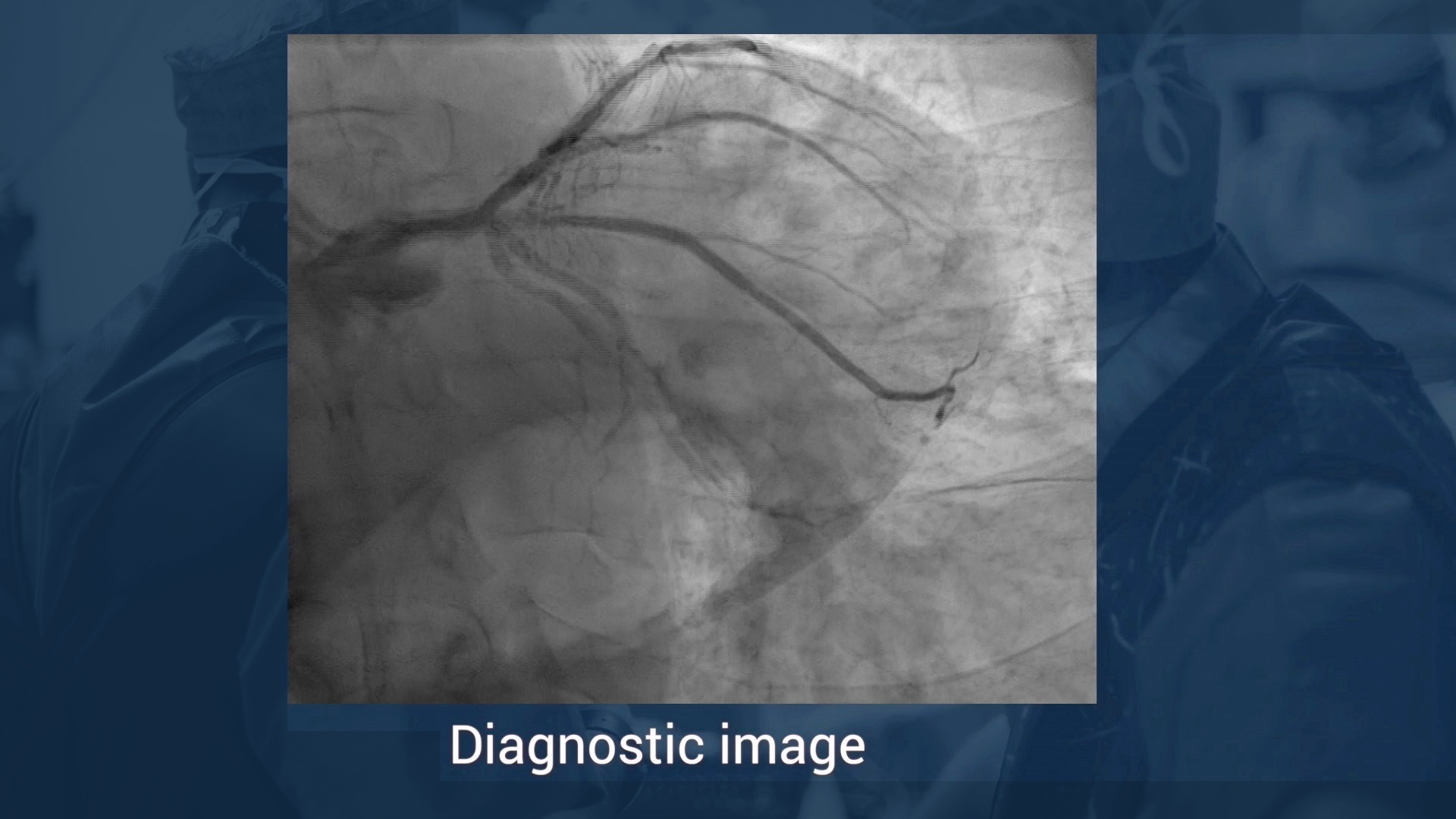
Ahmed B. Very nice session , thanks for everyone
Benjamin F. Bravo à tous les 4 pour cette belle session didactique! Bravo aux orateurs et à la clarté de leurs commentaires!
Adolphe K. si la FFR reste positive post angioplastie , quelle serait les hypophyses et la prise en charge.
DJOU U. quelle différence entre iFR et FFR?